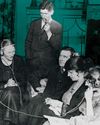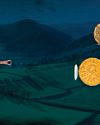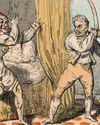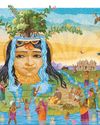
Shortly before 11.30am on 29 May 1953, with “a few more whacks of the ice-axe”, Edmund Hillary and Tenzing Norgay reached the summit of Mount Everest. Their time at the top was brief – just 15 minutes – but well recorded. Hilary wrote that: “There was no disguising [Tenzing’s] infectious grin of pure delight.” The New Zealander did, though, omit one detail from his original account – that, having summited the world’s highest mountain, soaring to 8,849 metres, he’d had “no choice but to urinate on it”. It’s an odd detail to mention but, as the story of their triumph shows, an important one.
In the seven decades since 1953, more than 6,000 people from many nations have stood on Everest’s summit. At that time, though, it was seen as essentially a ‘British’ mountain, first surveyed from British-ruled India and thus targeted by British mountaineers. And climbing Everest was arguably the last major British imperial project.
The seeds of the story were sown in 1847, when the Great Trigonometrical Survey of India set its sights on the eastern Himalaya. On the distant horizon, 120 miles beyond the Indian-Nepalese border, rose an insignificant summit known to the British initially as Peak XV. It wasn’t until five years later that, following complex calculations, the survey’s ‘Chief Computer’, mathematician Radhanath Sikdar, established that this mountain was the world’s highest. It was named in honour of the previous surveyor general of India, Sir George Everest.
Golden age
Diese Geschichte stammt aus der June 2023-Ausgabe von BBC History UK.
Starten Sie Ihre 7-tägige kostenlose Testversion von Magzter GOLD, um auf Tausende kuratierte Premium-Storys sowie über 8.000 Zeitschriften und Zeitungen zuzugreifen.
Bereits Abonnent ? Anmelden
Diese Geschichte stammt aus der June 2023-Ausgabe von BBC History UK.
Starten Sie Ihre 7-tägige kostenlose Testversion von Magzter GOLD, um auf Tausende kuratierte Premium-Storys sowie über 8.000 Zeitschriften und Zeitungen zuzugreifen.
Bereits Abonnent? Anmelden

The Victorians' cocaine habit
In the 19th century, a magic new drug took the medical community by storm, riding a wave of scientific endeavour.

Tower of light and dark
The gold-tipped monument that towers above Bath is an architectural jewel and a visceral reminder of the evils of slavery. PAUL BLOOMFIELD visits the newly restored haven built by the wealthy outcast William Beckford

How Britain found its frequency
When radios first appeared in British homes in the early 20th century, one thing soon became clear: domestic life would never be the same again. Beaty Rubens tracks Britons' reaction to this extraordinary new technology via seven cartoons

There are only a handful of survivors left who can say what happened
I WAS INTERVIEWING AN ALMOST 98-YEAR-OLD man about his memories of the Second World War this week.

THE KING LOST KINGDOM
Battered by the Vikings, outshone by King Alfred, Mercia has long been painted as the also-ran of the Anglo-Saxon world. Yet, writes Max Adams, this mighty Midlands kingdom was at the very heart of the emergence of England

Donald Trump has retaken the US presidency, repeating his vow to 'Make America Great Again'. But he's not the first to wield such a slogan. Back in the 1980s, Ronald Reagan stood for election with the same promise.Did he deliver?
Donald Trump's recurring battle cry \"Make America Great Again!\"- taps into a powerful sense among many Americans that life was better in the old days.

"In times of political volatility, it's more vital than ever that we tell women's stories"
What impact has recent instability around the world had on the study of women’s history? Does our desire for strong female role models risk erasing complexity? And whose lives are still overlooked? Ahead of Women’s History Month, ELLIE CAWTHORNE spoke to three historians about the state of the discipline

Five shocking tales from Britain's royal palaces
Royal residences have been a hotbed of drama, violence and intrigue down the centuries, as Kate Williams reveals

Why, the villagers wondered, were they completely green?
The story of the otherworldly children of Woolpit has long been treated as folklore - but, as John Clark explains, the tale may not be as fanciful as it seems

We are witnessing the biggest gathering of people in world history
I'M SURE, LIKE ME, READERS HAVE BEEN BOTH gripped and saddened this last month by the pictures of India's Kumbh Mela, the biggest pilgrimage in the world.